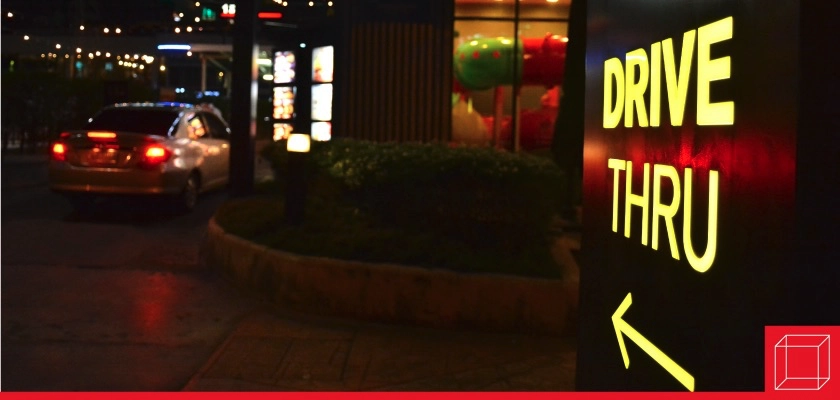McDonald’s Tests Its First Automated Restaurant | January 2023
Restaurants are turning to automation in the face of the post-pandemic labor shortage.

Restaurants are turning to automation in the face of the post-pandemic labor shortage. McDonald’s, one of the largest fast-food companies in the world, is testing an automated store just outside Fort Worth, Texas, powered by kiosks, an app, automatic conveyor belts, and other technologies.
What’s new?
The restaurant has a separate Order Ahead lane for customers who place their orders ahead of time via the McDonald’s app. Location-based technology allows the restaurant staff to begin preparing an individual’s order when they are close to the restaurant. These customers bypass the traditional Drive Thru lane and receive their orders through a conveyor system.
The restaurant interior is much smaller than a standard McDonald’s, no longer catering to dine-in guests. Instead, the space is optimized for takeout and delivery pickup. McDonald’s is not the only restaurant concept to focus on mobile and drive-thru orders. Taco Bell has been expanding its “Go Mobile” concept since 2020.
Not everyone is thrilled with this development. Consumers have taken to social media to share their worries about McDonald’s automated restaurant. One of the top concerns about this phenomenon is job loss. Millions of jobs could be on the line as automation gains more traction.
Customers have also expressed concerns about customer service and the accommodation of special requests such as asking for extra condiments. On the other hand, other customers said they were hopeful that an automated restaurant could improve the guest experience.
Shrinking labor pool
Companies are increasingly deploying automation solutions due to a shrinking labor pool. The labor shortage has pushed wages higher, creating strain on companies.
Amazon and Walgreens have invested in automated robots to perform tasks in warehouses. Jack in the Box has tested the automation of its fry and beverage stations. Chili’s has tested a robotic host to escort guests to their tables and deliver food. Robots are appealing to many organizations because they can improve accuracy and benefit from labor savings. According to the International Federation of Robotics, global robot sales are expected to grow 10 percent in 2023 to a record $17 billion.
Reassuring consumers
McDonald’s new automated store still has a human touch. The company says the Fort Worth restaurant has a human kitchen staff that prepares the orders. Using humans and automation in tandem, McDonald’s hopes to improve order speed and accuracy.
In the Classroom
This article can be used to discuss technology and robotics (Chapter 8: Managing Operations and Supply Chains).
Discussion Questions
How can automated technology result in labor savings?
What can McDonald’s do to reassure customers who are concerned about automation?
In your opinion, can an automated restaurant satisfy customers?
This article was developed with the support of Kelsey Reddick for and under the direction of O.C. Ferrell, Linda Ferrell, and Geoff Hirt.
Sources
Aimee Picchi, "McDonald’s Unveiled an Automated Store. Some Consumers Aren’t Loving It," CBS News, December 23, 2022, https://www.cbsnews.com/news/mcdonalds-automated-restaurant-robots-drive-thru-conveyer-belt/
Daren Fonda, "Robots Are Replacing Workers Lost in the Pandemic. They’re Here to Stay," Barron's, December 23, 2022, https://www.barrons.com/articles/robot-jobs-51671667349
McDonald's "5 Things to Know About McDonald’s New Test Restaurant in Texas," December 1, 2022, https://corporate.mcdonalds.com/corpmcd/our-stories/article/texas-order-ahead-lane.html



